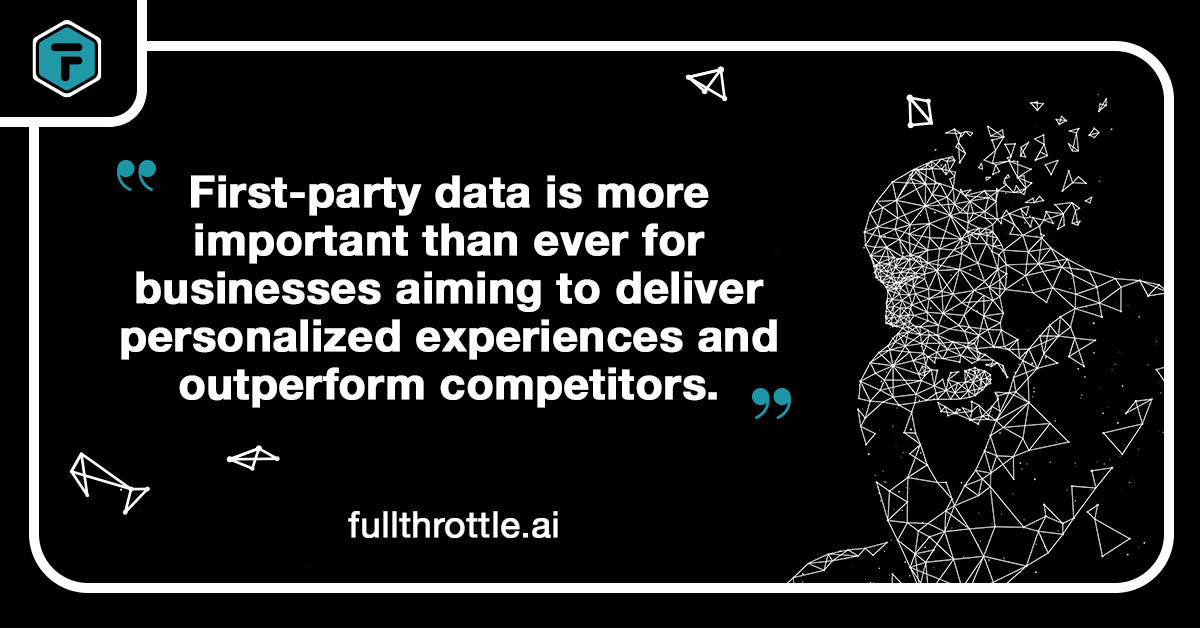
Success in Business: More Than a Numbers Game
When we think of success in business, our minds often go straight to sales. We think of numbers and profit margins, but it’s important to remember that success isn’t a monolith. It's a complex blend of elements that include profitability, operational costs, efficiency, and customer satisfaction. If you have skyrocketing sales but the costs of operations overshadow the profits, would you still consider your business successful? It's essential to take a more comprehensive view of what success means in the world of business and marketing. Let's look at the underrated role of sales attribution in modern strategies.
Key takeaways:
- Effective use of AI-powered platforms can provide insights into customer behavior, preferences, and the origin of audiences, leading to improved customer engagement.
- First-party data and multi-touch attribution can give businesses a competitive edge, enabling personalized experiences and more targeted marketing efforts.
- In a digitally dominated future, leveraging tools for first-party data collection and attribution analysis, like those offered by fullthrottle.aiTM, can drive business growth.
The Dangerous Pitfalls of Poor Sales Attribution
Sales attribution is much more than a buzzword; it's a key determinant of your marketing strategy's effectiveness and, ultimately, your business's bottom line. Without proper attribution, your understanding of the customer journey and marketing effectiveness becomes blurred, which could lead to significant missteps and missed opportunities.
One major pitfall of poor sales attribution is the lack of visibility into the true performance of your marketing channels. If your attribution model only considers the last touchpoint—the “last-click” model—before a purchase, you're essentially attributing the entire success to that single interaction. Now, you might underinvest in channels that play crucial roles in raising awareness and driving consideration, simply because they're not the ones directly leading to conversions.
For instance, let’s say a customer discovers your brand through a blog post (the first touchpoint), then interacts with an email campaign (middle touchpoint), and finally converts through a search ad (the last touchpoint). A last-click model would give all credit to the search ad. As a result, you might increase investment in search ads, while underestimating the role of content marketing and email campaigns. Your sales begin to sputter out and you’re left wondering why your PPC efforts aren’t working anymore — oblivious to the true cause.
Another danger of poor attribution is the misinterpretation of your customer journey. By not capturing the full trail of touchpoints, you miss out on crucial insights about your customer's behavior. This flawed understanding can lead you to make misguided marketing decisions, from timing your campaigns improperly to targeting the wrong audience segment, resulting in wasted marketing dollars and lowered return on investment.
It gets worse: poor attribution could also lead to subpar customer experiences. When you don't have a complete understanding of your customer's interactions with your brand, your messaging may not resonate or even reach the intended audience. This lack of personalized communication can lower customer engagement and potentially drive your customers to competitors who better understand their needs.
Inaccurate attribution may also skew performance metrics, leading to misleading conclusions about campaign success. This could divert resources away from tactics that are actually driving results, impacting overall profitability and growth.
Following the Footsteps of Your Customers
In order to truly understand your audience, treat the research like a detective story. You're piecing together various clues to understand their behaviors, decision-making processes, and overall customer journey.
Let's say you run an e-commerce business selling handmade crafts. A customer might first discover your site via a search engine, explore various product categories, add items to their cart, abandon the cart, receive a follow-up email, and finally make a purchase. Each of these touchpoints provides crucial insights. To leverage them fully, however, you need accurate and comprehensive attribution. Without it, you're only seeing part of the picture.
Here's where first-party data steps into the spotlight. This is information collected directly from your customers, like their purchase history, demographic details, and behavioral data. Still, how do you leverage this data, especially with the deprecation of third-party cookies and mobile IDs causing disruptions in the advertising industry?
Using AI To Get Insights From First-Party Data
Harnessing the power of first-party data can have a transformative impact on a business's marketing strategy. Precise tracking, analysis, and measurement of marketing efforts can lead to personalized and effective engagement.
Employing an AI-powered platform like fullthrottle.aiTM can help businesses send perfectly timed messages to their audiences. By deeply understanding their customers, businesses can not only identify the origins of their audiences but also gain insights into their behavioral patterns and preferences. This knowledge lays the foundation for improved customer engagement and higher returns on investment.
Shaping the Future: First-Party Data and Multi-Touch Sales Attribution
First-party data is more important than ever for businesses aiming to deliver personalized experiences and outperform competitors. The unique multi-touch attribution provided by fullthrottle.aiTM allows you to measure and assign credit to all the touchpoints that contribute to a consumer's decision to buy, creating a more accurate picture of what drives customer actions.
Looking ahead, businesses that leverage first-party data and multi-touch attribution will find themselves better equipped to drive growth in the digital age. The journey begins with understanding your audience and ends with intelligent action—a journey made easier with the support of platforms that enable a first-party data approach. Book a demo to start yours.


